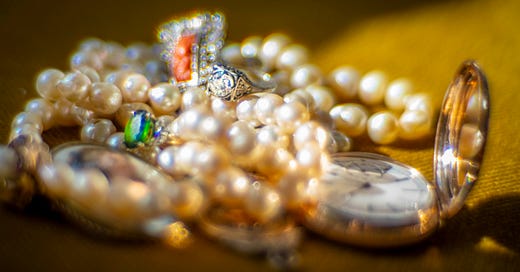Erased in life and death - a short piece for those interested in inheritance law.
What the Inheritance Review Says About Adoption.
In 2021, the New Zealand Law Commission Te Aka Matua o te Ture released sweeping proposals to reform succession law.
Their draft Inheritance (Claims Against Estates) Act is designed to clarify who can claim against a deceased person’s estate and under what circumstances.
The Commission promised a fairer, simpler system, respecting testamentary freedom while protecting vulnerable dependents.
Six months later, the Government accepted the proposals, agreeing that reform was required.
But what do they say about adoption?
Buried in the technical language of estate law is a reaffirmation of an old legal fiction: that adopted people are, for all legal purposes, the natural-born children of their adoptive parents — and total strangers to the family into which they were born.
In plain terms:
If you are adopted, you have no legal right to inherit from your biological family, unless they name you in a will.
Your right to claim inheritance is confined to your adoptive family in contrast to blended and step-parented families who may claim under intestacy rules.
The state sees your pre-adoption identity as irrelevant - in life and in death.
This stands in stark opposition to the government’s public claims about adoption.
Media statements, parliamentary rhetoric, and even submissions to The Hague all insist that adoption today is "open."
That adoption today allows for ongoing relationships with birth families.
That severance and secrecy belong to the past.
Despite these claims, adoption remains a system built on legal severance and institutional secrecy. It leaves no room for dual connection, whakapapa, genealogy, or the lived reality of relational truth.
A few months after the Government accepted the Law Commission review of succession law, they said:
“Aotearoa New Zealand's main adoption law, the Adoption Act 1955, no longer meets the needs of our society or reflects modern adoption best practice.”
But scroll down a couple of paragraphs, and they slip in:
“Work on adoption law reform is currently paused, in order to progress key Government priorities in the Justice portfolio.”
This contradiction between the state’s public narrative and the legal reality exposes the ongoing deception at the heart of adoption practice.
Given the timing, it’s almost as if the Law Commission knew that while the Ministry of Justice was talking up adoption law reform, it would never happen.
As if they knew there would be no pathway for reconnection, no restoration of kinship, and no recognition of harm.
Therefore, the proposed succession reforms did not need to leave room for future change.
Ultimately, the Law Commission endorsed the enduring absence of rights, not just in life, but even in death.
Meanwhile, because stepchildren are not adopted, their lineage is preserved, and their legal relationship with their birth parents remains intact.
They may inherit from both biological and step-parents (under intestacy rules or via a will)
In blended families, stepparenting adds new layers of relationship and identity. Adoption, by contrast, erases the original family entirely.
The adopted person is the only one required to lose an entire family in order to be cared for.
Have you been excluded from a birth family’s estate due to adoption?
Do you believe the law should recognise both sides of your identity?
Or the right to return to your original identity?
I’m compiling lived experiences to accompany legal reform submissions.
Tree of Strangers is available here, direct from the author, signed and inscribed.





It’s even worse. Often as adopted people: our “family ties” to adopters
are so ephemeral and transitory that we may never inherit from ANYONE.
Fascinating insight. And now with the absurdity of being permitted to have a birth certificate featuring two mothers or two fathers and not the two people who ensured your existence, what does that mean for inheritance? The further we go from reality, the crazier life becomes.